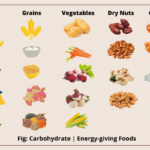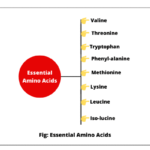Top 25 MCQ on Articles of Indian Constitution for Exams
Welcome to this challenging MCQ on Articles of Indian Constitution. In this quiz, we’ve compiled the top 25 multiple-choice questions based on the important Articles of the Constitution of India. These MCQ quizzes will test your knowledge and boost your preparation for UPSC, SSC, RRB, and State PCS exams. You’ll get a scorecard at the end of the quiz to check your performance.
So, are you ready to score 25/25? Let’s find out how well you really know the Articles of Indian Constitution. Let’s begin with question number 1.👇.
1. Article 1 of the Constitution declares India as –
A. Federal State
B. Quasi-Federal State
C. Unitary State
D. Union of States
d
Article 1 declares that India, that is Bharat, shall be a Union of States, and defines the territory of India.
2. How many Articles are there in the Indian Constitution (as of 2025)?
A. 395
B. 465
C. 448
D. 470
c
When the Constitution of India was adopted in 1950, it originally had 395 Articles divided into 22 Parts and 8 Schedules. Over time, with multiple amendments (like 42nd, 44th, 86th, 101st, 103rd, 104th, etc.), new Articles were added and some repealed. As of 2025, the Constitution contains 448 Articles in 25 Parts and 12 Schedules.
3. Which Article is known as the “Heart of the Constitution”?
A. Article 19
B. Article 21
C. Article 32
D. Article 14
c
Article 32 of the Indian Constitution is known as the “Heart and Soul of the Constitution” because it provides the right to constitutional remedies, which allows citizens to approach the Supreme Court directly for the enforcement of their fundamental rights if they are violated.
4. With what subject do Articles 5 to 11 of the Constitution of India deal?
A. Union and its Territory
B. Fundamental Rights
C. Directive Principles of State Policy
D. Citizenship
d
Articles 5 to 11 are grouped under Part II of the Constitution of India, which deals with Citizenship at the commencement of the Constitution (1950).
5. Which Article of the Indian Constitution provides for the impeachment of the President?
A. Article 60
B. Article 61
C. Article 62
D. Article 63
b
Article 61 lays down the procedure for impeachment of the President of India for violation of the Constitution.
6. Which of the following Article abolishes “untouchability”?
A. Article 15
B. Article 17
C. Article 19
D. Article 16
b
Article 17 states that “untouchability” is abolished and its practice in any form is forbidden.
7. Which Article prohibits discrimination on grounds of religion, race, caste, sex, or place of birth?
A. Article 14
B. Article 15
C. Article 16
D. Article 17
b
Article 15 prohibits discrimination on grounds of religion, race, caste, sex, or place of birth.
8. Which Article of the Indian Constitution provides for the institution of Panchayati Raj?
A. Article 36
B. Article 39
C. Article 40
D. Article 48
c
Article 40 of Indian Constitution provides for the organization of village panchayats.
9. Under which one of the following Articles of the Constitution of India is the “Annual Financial Statement” of the economy (Union Budget) to be laid before the Parliament every year before 31st March?
A. Article 110
B. Article 111
C. Article 112
D. Article 113
c
Article 112 of the Constitution of India provides for the Annual Financial Statement, commonly known as the Union Budget. It contains the estimated receipts and expenditure of the Government of India for a financial year (April 1 to March 31). The statement is presented by the Finance Minister in Lok Sabha, usually on 1st February, so that it can be passed and enacted before the new financial year begins on 1st April.
10. Which one of the following Articles of the Indian Constitution has provision for the President to proclaim Emergency?
A. Article 352
B. Article 356
C. Article 360
D. Article 368
a
Article 352 empowers the President to proclaim a National Emergency if he is satisfied that the security of India or any part thereof is threatened by war, external aggression, or armed rebellion.
11. The articles of the Indian Constitution which deals with Directive Principles of State Policy are
A. 26 to 41
B. 30 to 45
C. 36 to 51
D. 40 to 55
c
The articles 36 to 51 of the Indian Constitution deals with Directive Principles of State Policy.
12. Under which Article of the Indian Constitution can the President of India be impeached?
A. Article 61
B. Article 75
C. Article 76
D. Article 356
a
Article 61 of the Constitution lays down the procedure for the impeachment of the President of India. The President can be removed from office for “violation of the Constitution”.
13. Which Article of the Constitution of India gives precedence to constitutional provisions over laws made by the Union Parliament or State Legislature?
A. Article 12
B. Article 13
C. Article 245
D. Article 326
c
Article 245 of the Constitution of India gives precedence to constitutional provisions over laws made by the Union Parliament or State Legislature.
14. Which of the following Articles of the Indian Constitution governs the distribution of powers between the Union and the States?
A. Article 245
B. Article 246
C. Article 248
D. Article 249
b
Article 246 deals with the distribution of legislative powers between the Union (Parliament) and the States (State Legislatures). It provides three lists (Union list, State list, and Concurrent list) in Seventh Schedule.
15. Which of the following Articles of the Indian Constitution deals with the appointment and dismissal of the Council of Ministers?
A. Article 70
B. Article 72
C. Article 74
D. Article 75
d
Article 75 of the Constitution provides that the Prime Minister is appointed by the President. Other ministers are appointed by the President on the advice of the Prime Minister.
16. Which Article of the Indian Constitution deals with the appellate jurisdiction of the Supreme Court in connection with constitutional cases?
A. Article 131
B. Article 132
C. Article 132 read with Article 134A
D. Article 133 read with Article 134A
C
Article 132 gives the appellate jurisdiction of the Supreme Court in civil cases where a High Court has pronounced a decision involving a substantial question of law as to the interpretation of the Constitution. Article 134A amended to extend the Supreme Court’s appellate jurisdiction in certain constitutional matters.
17. The procedure for creation (or abolition) of Legislative Councils in States has been described in which Article of the Constitution of India?
A. Article 168
B. Article 169
C. Article 170
D. Article 171
b
Article 169 deals with the creation or abolition of the Legislative Council (Vidhan Parishad) in a State.
18. Which constitutional provision lays down that taxes can neither be levied nor collected without the authority of law?
A. Article 265
B. Article 266
C. Article 267
D. Article 268
a
Article 265 of the Constitution of India clearly states: “No tax shall be levied or collected except by authority of law”.
19. Article 249 of the Constitution of India deals with which of the following?
A. Emergency power of the President
B. Dissolution of the Lok Sabha
C. Administrative power of the Parliament
D. Legislative power of the Parliament with respect to a matter in the State List
d
Article 249 empowers Parliament to make laws on subjects in the State List if the Rajya Sabha passes a resolution (by a two-thirds majority of members present and voting) declaring that it is necessary in the national interest. Such a resolution remains in force for one year, but it can be renewed.
20. Which provision relating to the Fundamental Rights is directly related to the exploitation of children?
A. Article 14
B. Article 19
C. Article 23
D. Article 24
d
Article 24 of the Constitution of India specifically prohibits the employment of children below the age of 14 years in factories, mines, or any other hazardous employment.
21. In which Article of the Indian Constitution is it laid down that it shall be the duty of every citizen of India to protect and improve the natural environment?
A. Article 21
B. Article 48 A
C. Article 51 A
D. Article 51 B
C
Article 51A(g), inserted by the 42nd Constitutional Amendment Act, 1976, makes it a Fundamental Duty of every citizen to protect and improve the natural environment, including forests, lakes, rivers, and wildlife.
22. Which Article was amended (deleted) to remove Right to Property from being a Fundamental Right?
A. Article 19
B. Article 31
C. Article 300A
D. Article 32
b
Right to Property was originally under Article 31. It was removed from the list of Fundamental Rights by the 44th Amendment Act, 1978, and converted into a constitutional/legal right under Article 300A.
23. Which Article of the Indian Constitution says that the executive power of every State shall be so exercised as not to impede or prejudice the exercise of the executive power of the Union?
A. Article 256
B. Article 257
C. Article 258
D. Article 261
b
Article 257(1) of the Indian Constitution states that the executive power of every State shall be exercised so as not to impede or prejudice the exercise of the executive power of the Union.
24. Which one of the Articles of the Constitution of India talks about adult suffrage?
A. Article 324
B. Article 325
C. Article 326
D. Article 327
c
Article 326 provides for elections to the House of the People (Lok Sabha) and the Legislative Assemblies of States based on adult suffrage.
25. Which Article empowers the Supreme Court to issue directions, orders or writs for enforcement of Fundamental Rights?
A. Article 13
B. Article 15
C. Article 32
D. Article 226
c
Article 32 of the Constitution of India empowers the Supreme Court to issue directions, orders, or writs for the enforcement of Fundamental Rights. This right is also known as the “Right to Constitutional Remedies” which allows individuals to approach the Supreme Court directly when their fundamental rights are violated.
Quiz Results
Total Questions: 0
Correct Answers: 0
Incorrect Answers: 0
Score: 0%








